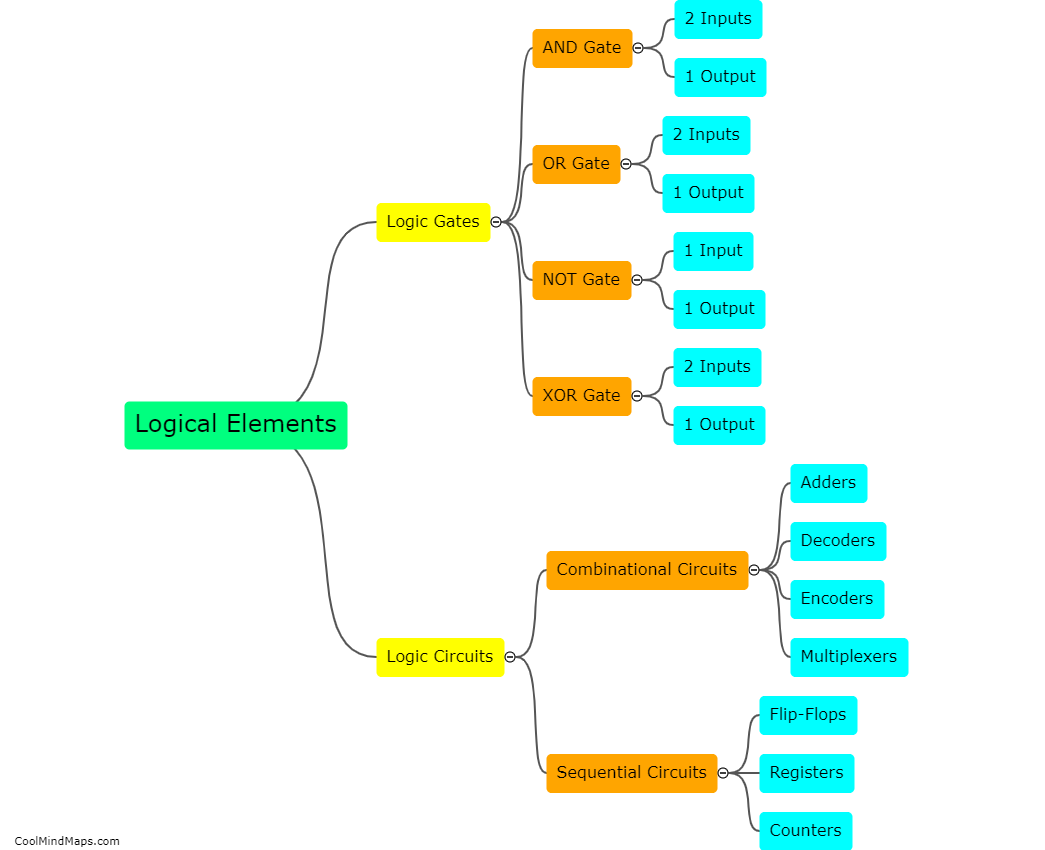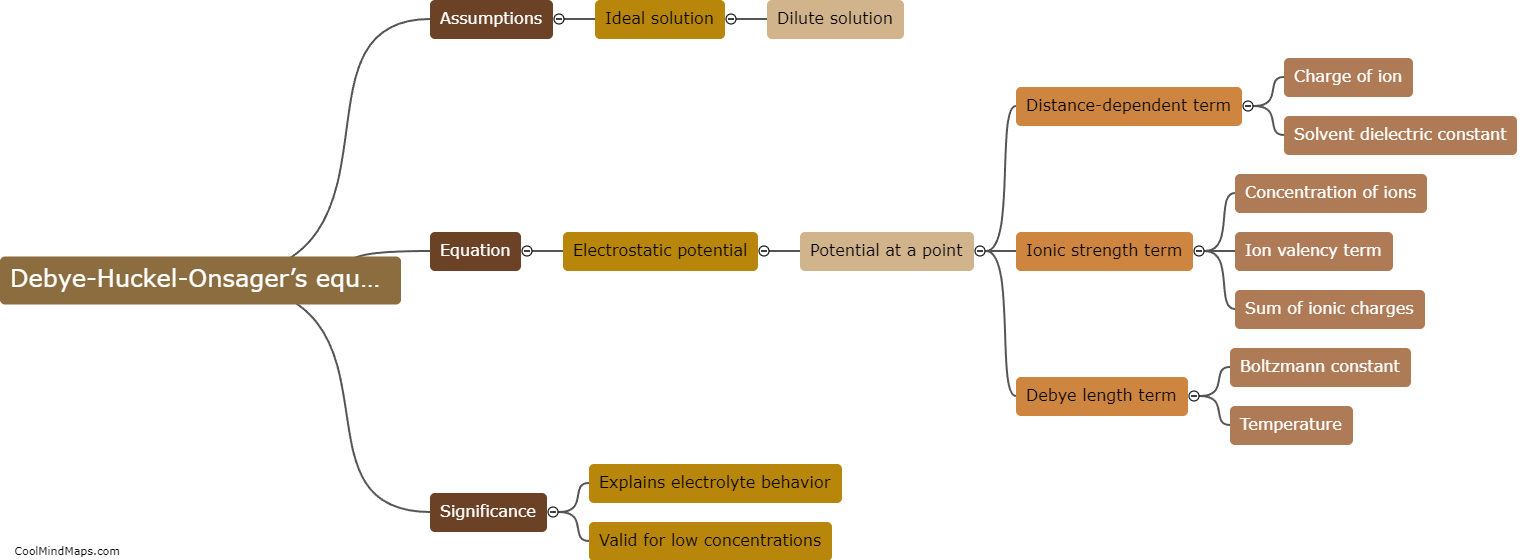What are the different types of logical elements?
In logic, there are several types of logical elements that are used to construct logical statements and arguments. These include propositions, connectives, quantifiers, and variables. Propositions are statements that can be either true or false, such as "It is raining" or "2 + 2 = 4." Connectives are used to combine propositions or to modify their truth value, and include logical operators like "and," "or," and "not." Quantifiers are used to describe the scope of variables in a statement, such as "for all" or "there exists." Variables are placeholders that represent elements of a given set, allowing for generalizations and specific instances to be expressed in logical statements. By using these different types of logical elements, one can construct complex logical arguments and analyze them for validity and soundness.

This mind map was published on 20 November 2023 and has been viewed 125 times.











